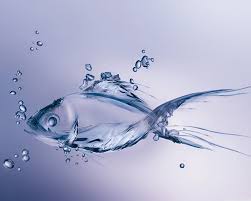Erien Answers Your Question: What Type of Water is Best? Part 5
John 4:7- There cometh a woman of Samaria to draw water: Jesus saith unto her, Give me to drink.
Charcoal, Submicron-Straining Carbon Purifiers, Ceramic, Bactericides, UV Light, Ozone or Reverse Osmosis What Filtering Mechanism is Best for YOU (Part 2)
Once again, we are back at the never tiring well of information that helps us answer the seemingly simple question: What Type of Water is Best? In part one of the methods of filtration, we covered charcoal, submicron-straining carbon purifiers, and ceramics. Today we drill further to cover bactericides, ultraviolet light, ozone and reverse osmosis.
- Bactericides
Bactericides are agents that kill bacteria, microorganisms such as parasites, amoebae, protozoa, algae, cysts, and viruses responsible for waterborne diseases such as typhoid, dysentery, and hepatitis, to name a few. We will briefly examine six of the most common bactericides.
Chlorine is a common bactericide. However, after adding chlorine to the water supply to kill bacteria, we realized that chlorine combined with other chemicals in the water to form cancer-causing by-products. Also, after ninety-nine outbreaks of waterborne diseases in the United States, we learned that chlorine was not as dependable as initially thought against larger organisms such as cysts, amoebae, and protozoa.
Bromine is more expensive and more effective than chlorine and rarely used in public water supplies. Industrial use of bromine is frequent and is a favorite when used in swimming pools since it does not cause “swimmers red eye” and other side effects associated with chlorine.
Iodine is a popular choice among campers, travelers, and the military and if capable of destroying cysts, bacteria, and viruses. Although iodine is a nutrient, when combined with other aquatic organic compounds it can become toxic limiting its use in long-term situations and during pregnancy.
Silver is the old timer in the bunch. However, due in part to the amount of time that it must stay in contact with the water and its slow reaction time, it has fallen out of favor.
All of the bactericides mentioned thus far require adequate dose, time, and environment to work optimally. Other chemicals in the water such as iron, sulfur, and ammonia, in agricultural runoff or decaying leaves, may bind to the bactericides and produce toxic by-products and adversely affect their effectiveness. Many may also find the thought of drinking dead bacteria hard to swallow.
Ultraviolet Light commonly used in hospitals, laboratories, and barber shops in the form of germicidal lamps can also be used to kill germs in water. UV light is economical, low maintenance, and is increasing in popularity. However, UV light needs supplementation from carbon filtration or ceramics and requires a long contact time with the water requiring a slower flow rate.
Ozone forms when two oxygen molecules are separated and the freed oxygen combines temporarily with another regular oxygen. Ozone is one of our most potent natural germicides. Germany, Italy, France, and Canada use ozone for municipal water purification. Several cities in the United States also utilize this technology in water purification. Although this method of purification is most well known and used in air purification, it is not as economical as other bactericides when used in aquatic situations. However, the technology is quite promising when combined with a high-density carbon prefilter.
We learned that there are at least six common methods of destroying bacteria found in water. As with all of the other types of filtration, each technique has strengths and weaknesses. We will further our study of methods to obtain the best water next time as we learn about revere osmosis and distillation in Part 6 of Erien Answers Your Question: What Type of Water is Best?
Please visit our website at www.medicaldirectcare.com/blog and view previous blog posts. Please click HERE to share YOUR health and wellness topics of interest.
Reference: Water: The Ultimate Cure by Steve Merowitz

